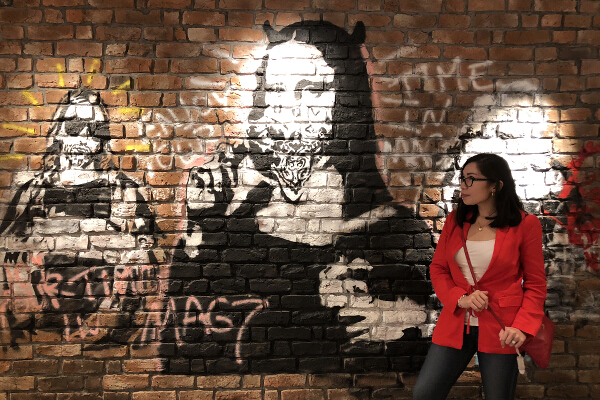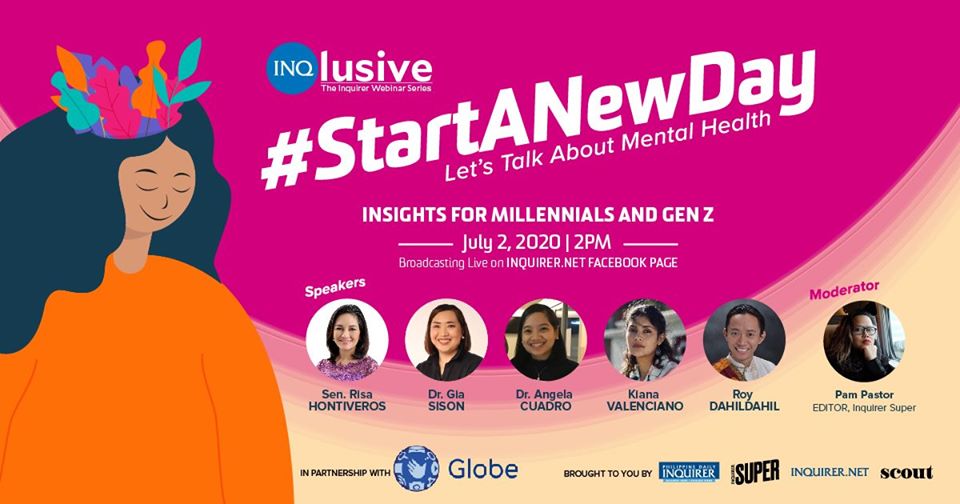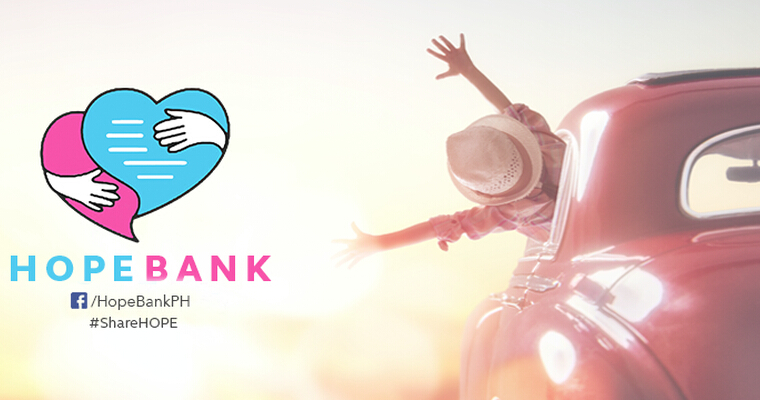I always knew being a new mom had its own mental health risks, or shall we say effects. Coupled with being in the midst of a pandemic, it seems like the perfect recipe for a bad case of postpartum depression.
I’ve been sitting on writing about mental health for a while. I sometimes want to post on social media about what I’m going through as a new mom during a pandemic, but I worry that it will be seen as a call for attention rather than a cry for help. It’s a huge step for me to be even blogging about this. It was a long process for me to even acknowledge to myself that I have a problem, and finally writing about it is one of the ways I’m dealing with it.
I’ve always been an anxious person, but now that I’m a mom, the anxiety has increased a hundredfold. I’m no longer just worrying about myself, my future, and my family. I’m worrying most of all about my baby, about how I can keep her and the rest of my family safe from COVID-19, about whether she’ll have a normal childhood with the pandemic still upon us, about whether she’ll ever go to school and experience all the wonderful things children should experience—playing with other kids, visiting parks and other places of amusement, traveling with us, swimming in a pool and the sea, and so on. A hundred worries cross my mind every minute, and sometimes I get paralyzed by fear and anxiety for my daughter’s safety and future.
Besides the anxiety, I also constantly feel depressed, lonely, and isolated. They say it takes a village to raise a child, but the pandemic took that away from me. I’m alone with my baby (and my thoughts) all day until my husband comes home from work. We have been isolated in a farm in a rural town since before Manila went on lockdown. There’s no way for me to see my mom, who’s really been my number one source of support. The friends I expected to be there weren’t—they have their own issues to grapple with, I understand. Everyone has their own problems; how can I bother them with mine?
For the sake of my daughter, however, I fight so hard against anxiety and depression. As a mom, I need to get a grip on my mental health.
The mental health webinar hosted by Globe and Inquirer called #StartANewDay, Let’s Talk About Mental Health: Insights for Millennials and Gen Zs yesterday, July 2, couldn’t have come at a better time. It focused on facing the challenges that the new normal brings, getting help, and finding hope. Speakers included mental health advocates Sen. Risa Hontiveros and artist Kiana Valenciano, as well as mental health experts Dr. Gia Sison, Dr. Angela Cuadro, and #MentalHealthPH’s Roy Dahildahil.
Tuning into the webinar made me realize there are indeed so many people going through something similar because of this pandemic. Psychiatrist Dr. Cuadro said during the webinar that existing/inherent vulnerabilities and mental health problems (depression, anxiety, trauma symptoms) could be exacerbated by the pandemic. I appreciated the pointers the experts shared for practicing mental health hygiene as we navigate this new normal, so I decided to share them here:
Self care is important.
I loved what Roy Dahildahil said: “Self care is not selfish. What you’re feeling is valid.” This is what I prioritized when I acknowledged my mental health is at risk. I joined a 21-day meditation challenge. I journal. I read books. I swiftly removed myself from situations that upset me—be it by leaving group chats, unfollowing people on social media, or avoiding fights with my husband no matter how much I want to argue. Sen. Hontiveros also recommends drinking lots of water, turning off the news, resting more, and remembering that mental health matters and you matter.
Kiana Valenciano shared the pandemic forced her to confront her bad habits and how she perpetuates toxic thinking. She now has conversations with herself about how much she has been taking for granted. She shared that what helps is to “focus on self and what you can do right now, meditate, and accept that no matter how many therapy sessions and advice you’re given, bad days will come, so just power through them.”
Dr. Gia Sison added that to care for mental health as we navigate the new normal, we must “take each day one day at a time. Celebrate small wins (i.e. being able to exercise for 10 mins—nothing is too small). We all anchor on hope. Even when we don’t know when this will end, it will pass. Let’s make do with what we have.”
Use social media responsibly.
Part of self care for mental health is knowing when to use social media—and when to quit. I try to avoid social media as much as I can these days because I found that depressing news and fake news don’t help my mental health. Kiana also cautions against comparing ourselves with others on social media (i.e. thinking “she’s dealing with it better than I am”), which I can totally relate to. Dr. Sison recommends “limiting oneself to two credible sources to get facts just because you need to know what’s happening. Stay connected to family. Limit social media outlets you follow. Use block/mute features—there’s power in that when everything seems overwhelming.”
Now, more than ever, we need to protect ourselves from the mental health dangers of social media. Here are some tips from Mr. Dahildahil: “Be mindful of content you are sharing and what you are consuming. Be mindful how you are sharing content; they can affect other people; be mindful that it helps you and other people. Be mindful of how you are affected by this content: self-check—is it too negative? Be mindful of why you are using social media—to inspire? to gain info? Be mindful how social media helps you. If social media no longer helps you, take a social media detox. Find other ways to stay connected with family and to what’s happening in the community/country.”
Talk about it.
I often wish I can talk to someone about my mental health, and that’s one of the common tips the experts shared about dealing with mental health problems: “Reach out to family. Keep talking about mental health. Sharing is all part of our ways of coping. Human connection is important.” I often talk to my mom when I struggle and feel I can no longer handle it. Kiana reminds us, “Mental health is a hard burden to carry on your own. We need to have these conversations about it in order to heal.”
And while you can talk about it on social media, Dr. Cuadro reminds us that “Virtual spaces can be used but [we must] have real connections, real conversations, real communication” on these platforms.
Seek help and build a support system.
Another recurring tip from the experts is seeking help and building a circle of people who can help carry the weight with you and be there for you. I loved what Kiana said, that we must “let loved ones love you. It’s more helpful than keeping it in and holding on to dark thoughts by yourself.” My mom reminded me not to wallow in self-pity, and it helped to acknowledge that while the people I expected to be there for me weren’t, people I least expected to actually reached out to offer support, knowing I must be struggling as a new mom in the midst of a pandemic.
Not having a budget to see a psychiatrist should not be an obstacle to getting help because there are resources that provide help for free or just a small fee. Contact Hopeline‘s hotline numbers (02-88044673, 0917-5584673, or 2919 for Globe and TM Subscribers), talk to a doctor via KonsultaMD, or just exchange thoughts of hope and light with the online community at HopeBank.
Be of help.
You may not be suffering from a mental health problem, but be compassionate to those who are struggling. Dr. Cuadro advises that helping loved ones who are struggling with mental health issues “starts with a willingness to be uncomfortable together. Use permissive words that allow people to seek your help. Be one of those whom friends and family can come to for help who can handle whatever it is they will say.”
Mr. Dahildahil also suggests that “Wanting to help other people is part of the journey toward healing. Share what helped you in order to break the stigma that we can’t talk about mental health.”
Recognize that mental health is something that needs to be addressed as seriously as any health problem.
What makes mental health problems worse is the stigma that comes with it. People refuse to acknowledge that it is something to be prioritized and addressed as urgently as any health problem. It’s one thing to be willing to talk about it and get help, and it’s another when people around you don’t take it seriously enough to listen to you and help you because “nag-iinarte ka lang.” According to Sen. Hontiveros, even the World Health Organization (WHO) recognized that we need to look out for mental health in the midst of this pandemic.
It would be nice to have a next session that’s more focused on moms and how they can get mental health help handling the pandemic—especially new moms like me who are not only potentially dealing with postpartum depression or just basic exhaustion and sleeplessness that come with baby territory, but are now also aggravated by the pandemic.


























